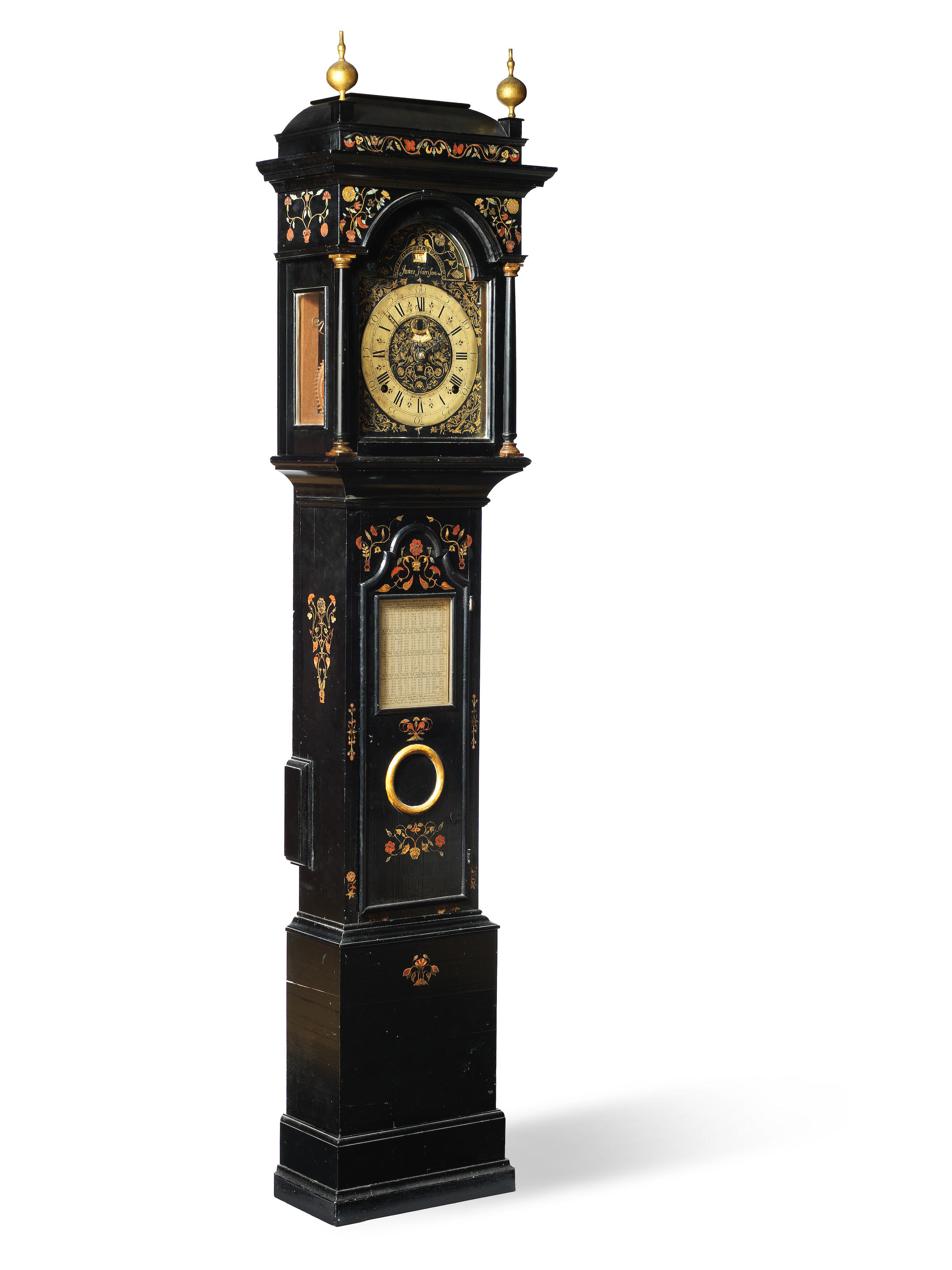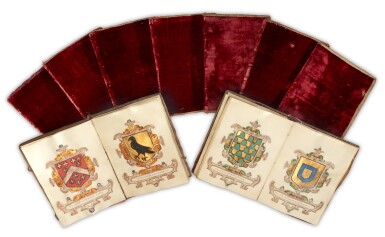Archive of William Courtenay (1832-1901), Civil War veteran, frontier businessman, and postmaster, physician, clerk, and Indian Agent at Ft. Berthold, Dakota Territory. Collection spans roughly 1865-1895 (bulk 1870s), and consists of hundreds of pages of documents and 9 photographs. This historically significant archive provides enormous insight into the daily happenings and ongoing issues at Fort Berthold Indian Agency during a critical period, and is of particular interest for its relevance to frontier transactions, documenting corruption, and the reservation system. Highlights include an eight-page manuscript report with testimony by Gros Ventre Chief Lean Wolf (also known as Chief Poor Wolf) relating to privations of American Indians on Fort Berthold Agency and Sioux violence; a series of letters written to William Courtenay and his wife by Gros Ventre Wolf Chief discussing his people's poverty, distrust of a new Indian agent, and other struggles; and the postmaster letter press copy book detailing activity at Fort Berthold in the years 1875-1876. William Courtenay was an adventuresome English immigrant who made his way and his fortune on the American frontier. After serving with "H" Co. US Army 13th Infantry during the Civil War, Courtenay settled in the bustling frontier town of Fort Benton, Montana. Here Courtenay entered business gathering wood for the steamboats that traversed the Missouri River and engaging in trade with the Indians. By the early 1870s Courtenay had established himself as an Indian trader and was well-acquainted with frontier and native culture. On September 1, 1874, he was appointed as Postmaster of Fort Berthold Indian Agency, then in 1879 he was appointed the reservation's Indian Agent. On July 19, 1880, Courtenay married Fannie Patterson. The two removed to Miles City, Montana, in 1882, where Courtenay became one of the most prominent businessmen in the city. Initially a fur trading post and then an army outpost, in 1868 Fort Berthold became the Indian Agency for the American Indians known as the Three Affiliated Tribes, or the Mandan, Hidatsa [Gros Ventre], and Arikara. Unlike other tribes who remained hostile to the US Government and white settlers during the 1860s and 1870s, Indians at Fort Berthold Agency largely remained loyal to the authority of the US Government - though at a high price. Documents in this collection attest to the fact that the Three Affiliated Tribes, who had already been savaged by disease, suffered greatly at the agency due to inadequate military protection, hostile Sioux, meager food rations, and the corruption and disdain of government officials and traders. For his part, Courtenay appears to have done his best to treat the American Indians at Fort Berthold fairly and humanely during his time there. He seemingly harbored a great respect for American Indian culture, amassing a large collection of native "curiosities" and other items which he sometimes gifted to friends (see Lot 369, letter to Gen. G.A. Custer). The extensive archive offered here predominantly relates to Courtenay's years at Fort Berthold and to the American Indians residing on the reservation. Contents of particular note include the following: Postmaster's letter press copy book, completely disbound, with over 250 pages of ink transfer copies spanning 1874-1881, but primarily from March 1875 - October 1876. Copy letters signed almost entirely by Courtenay, including correspondence detailing post transactions such as purchases of meat and tobacco and the selling of hides. Book also includes copies of more personal correspondence, some related to reservation corruption, such as an excellent six page letter of March 27 [year illegible] written to Acting Commissioner of Indian Affairs E.J. Brooks Esq. in Washington DC describing the activity of J.E. Tappan, Ft. Berthold Indian Agent from 1871-1873, and likely evidence of corruption. Another letter written January 31st, 1874, to Col. Campbell K. Peck of the
Archive of William Courtenay (1832-1901), Civil War veteran, frontier businessman, and postmaster, physician, clerk, and Indian Agent at Ft. Berthold, Dakota Territory. Collection spans roughly 1865-1895 (bulk 1870s), and consists of hundreds of pages of documents and 9 photographs. This historically significant archive provides enormous insight into the daily happenings and ongoing issues at Fort Berthold Indian Agency during a critical period, and is of particular interest for its relevance to frontier transactions, documenting corruption, and the reservation system. Highlights include an eight-page manuscript report with testimony by Gros Ventre Chief Lean Wolf (also known as Chief Poor Wolf) relating to privations of American Indians on Fort Berthold Agency and Sioux violence; a series of letters written to William Courtenay and his wife by Gros Ventre Wolf Chief discussing his people's poverty, distrust of a new Indian agent, and other struggles; and the postmaster letter press copy book detailing activity at Fort Berthold in the years 1875-1876. William Courtenay was an adventuresome English immigrant who made his way and his fortune on the American frontier. After serving with "H" Co. US Army 13th Infantry during the Civil War, Courtenay settled in the bustling frontier town of Fort Benton, Montana. Here Courtenay entered business gathering wood for the steamboats that traversed the Missouri River and engaging in trade with the Indians. By the early 1870s Courtenay had established himself as an Indian trader and was well-acquainted with frontier and native culture. On September 1, 1874, he was appointed as Postmaster of Fort Berthold Indian Agency, then in 1879 he was appointed the reservation's Indian Agent. On July 19, 1880, Courtenay married Fannie Patterson. The two removed to Miles City, Montana, in 1882, where Courtenay became one of the most prominent businessmen in the city. Initially a fur trading post and then an army outpost, in 1868 Fort Berthold became the Indian Agency for the American Indians known as the Three Affiliated Tribes, or the Mandan, Hidatsa [Gros Ventre], and Arikara. Unlike other tribes who remained hostile to the US Government and white settlers during the 1860s and 1870s, Indians at Fort Berthold Agency largely remained loyal to the authority of the US Government - though at a high price. Documents in this collection attest to the fact that the Three Affiliated Tribes, who had already been savaged by disease, suffered greatly at the agency due to inadequate military protection, hostile Sioux, meager food rations, and the corruption and disdain of government officials and traders. For his part, Courtenay appears to have done his best to treat the American Indians at Fort Berthold fairly and humanely during his time there. He seemingly harbored a great respect for American Indian culture, amassing a large collection of native "curiosities" and other items which he sometimes gifted to friends (see Lot 369, letter to Gen. G.A. Custer). The extensive archive offered here predominantly relates to Courtenay's years at Fort Berthold and to the American Indians residing on the reservation. Contents of particular note include the following: Postmaster's letter press copy book, completely disbound, with over 250 pages of ink transfer copies spanning 1874-1881, but primarily from March 1875 - October 1876. Copy letters signed almost entirely by Courtenay, including correspondence detailing post transactions such as purchases of meat and tobacco and the selling of hides. Book also includes copies of more personal correspondence, some related to reservation corruption, such as an excellent six page letter of March 27 [year illegible] written to Acting Commissioner of Indian Affairs E.J. Brooks Esq. in Washington DC describing the activity of J.E. Tappan, Ft. Berthold Indian Agent from 1871-1873, and likely evidence of corruption. Another letter written January 31st, 1874, to Col. Campbell K. Peck of the



.jpg)






.jpg)




Testen Sie LotSearch und seine Premium-Features 7 Tage - ohne Kosten!
Lassen Sie sich automatisch über neue Objekte in kommenden Auktionen benachrichtigen.
Suchauftrag anlegen